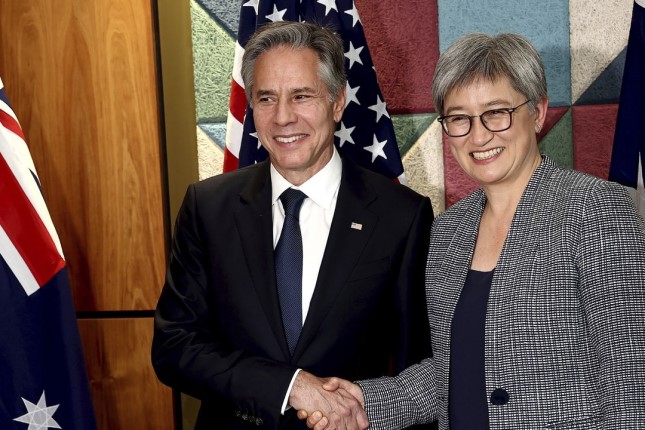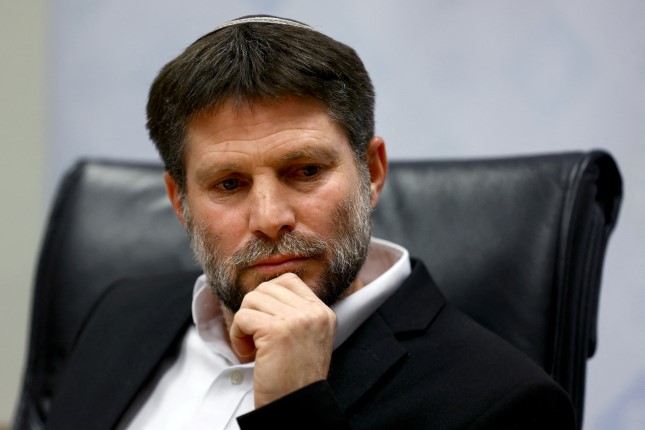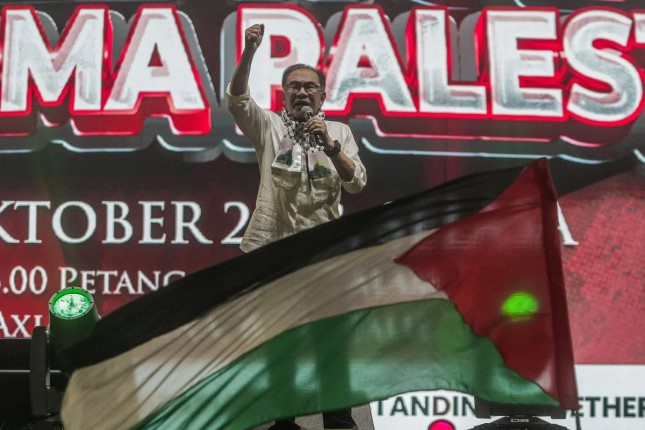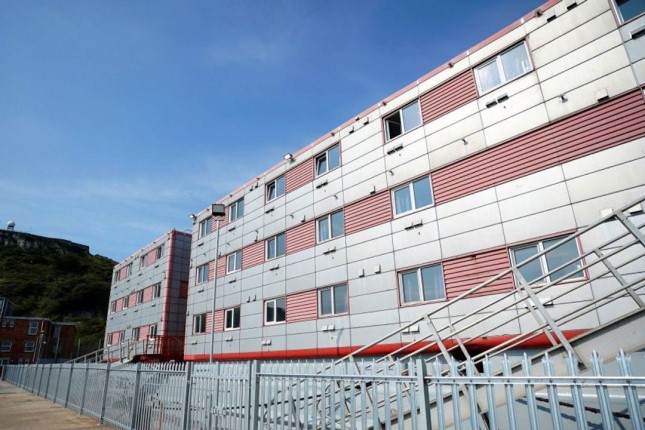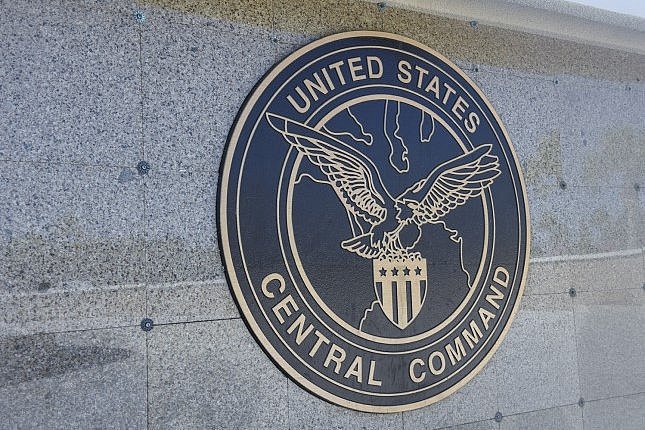Speaking in Brisbane, Australia on Saturday, US Secretary of State Antony Blinken launched a full-throated denunciation of Julian Assange. Blinken branded the WikiLeaks founder a criminal and made plain that the Biden administration will proceed with the attempt to extradite Assange from Britain and prosecute him under the draconian US Espionage Act.
The remarks had the character of an extraordinary outburst. But it was fairly clear that Blinken was not improvising or speaking merely off the cuff.
His were the most explicit comments on the Assange case by a top US official since the Biden administration took office in early 2021. Previously the standard line, including from Blinken, has been to dodge questions on Assange. His attempted prosecution, the story went, was a matter for the Department of Justice, which was entirely independent of the administration.
Blinken dispensed with that fiction. He provided a precis of the main arguments of the US prosecution, bringing forward all the lies that have been used to railroad the WikiLeaks publisher.
The choice of location for this intervention was not accidental. Blinken decided to make his first comments on the case in Australia, where Assange is a citizen and has widespread support. The statement was a deliberate and provocative rebuke to any suggestion that deepening American-Australian ties would result in a let-up in the US-led persecution of Assange or even his freedom.
The comments brought to a close the charade that the Australian Labor government is somehow pushing for Assange’s liberty, through tepid statements that “enough is enough” and the case has “gone on too long.” Instead, Labor is giving the US everything it wants in the transformation of Australia into a base for offensive operations throughout the Indo-Pacific. Assange is to be extradited and prosecuted for exposing US-led war crimes in Iraq and Afghanistan.
In breaking his silence and attempting to strike a blow against Assange, Blinken revealed the substance of the attempted US prosecution: equal parts defamatory slanders and authoritarianism.
Blinken said he could “understand the concerns and views of Australians” in relation to Assange. The image of a beneficent mafia don comes to mind.
But, as with crime bosses, there is always a sting in the tail. It was “important that our friends here understand our concerns about this matter.”
“Mr Assange was charged with very serious criminal conduct in the United States in connection with his alleged role in one of the largest compromises of classified information in the history of our country,” Blinken declared. “The actions that he is alleged to have committed risked very serious harm to our national security.”
The “compromise,” so described by military and intelligence agencies, is known in journalism as a “leak.” Such leaks have been the foundation of serious reporting since the very origins of the modern media.
As for the claim that Assange “risked very serious harm to our national security,” the obvious retort is: so what? The claim that any journalist is responsible for protecting “national security” by concealing true and newsworthy information from the population, and presumably finking on the leaker, is straight out of the playbook of every dictatorship that has ever existed.
That Assange was an Australian citizen, who always conducted his journalistic work outside the United States, makes the assertion of US government control of the press even more sweeping. Blinken’s doctrine is one in which the US state is the ultimate arbiter of all journalism, reportage and commentary literally anywhere in the world.
More generally, “national security” is code for the interests of imperialism, its military agencies and governments.
Assange’s actions, Blinken claimed, had been to “the benefit of our adversaries.” The same objections as above apply to this statement. But the absurdity of the charge is underscored by the publications for which the US is attempting to prosecute Assange.
The US army’s Afghan and Iraq war logs were significant because they showed that American imperialism was engaged in mass killings of civilians, torture and other war crimes. The Guantánamo Bay detainee files were of note because they demonstrated that the US government was unlawfully detaining innocent civilians, including children and the very elderly, as part of its “war on terror” dragnet. And the US diplomatic cables revealed by WikiLeaks exposed US meddling, coup plots, election interference and other criminal actions all over the world including against its formal ally, Australia.
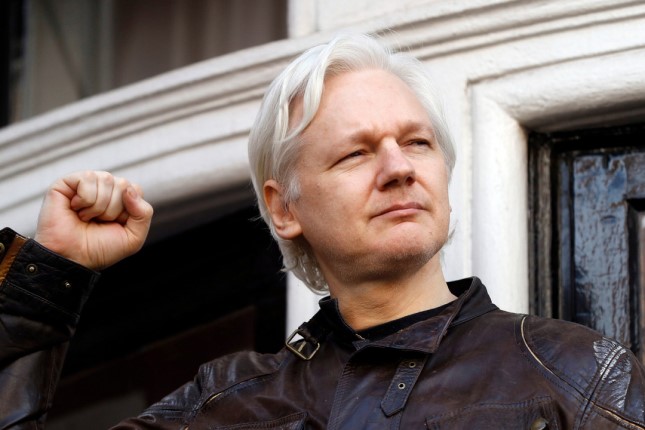
WikiLeaks founder Julian Assange greets supporters from a balcony of the Ecuadorian embassy in London. Photo: AP Photo / Frank Augstein / File.
The principal beneficiaries of all these publications were the world’s people. That includes, in the first instance, the people of Iraq and Afghanistan, whose criminal treatment at the hands of the world’s most powerful military was finally exposed. But it also encompasses the American population, the overwhelming majority of whom defend democratic rights and have an instinctive hostility to bullying militarism.
No US administration or official, Democrat or Republican, has declared that the war crimes exposed by WikiLeaks should not have happened. Nor have they resulted in prosecutions. The objection is not that these atrocities occurred but that the world’s population were informed.
Blinken, inevitably, repeated the claim that Assange had “put named human sources at grave risk, grave risk of physical harm, grave risk of detention.” Even if this were the case, it would not vitiate Assange’s rights to freedom of speech and freedom of the press, established both in international law and under the American Constitution.
But it is not true. As a consequence of the extradition hearings initiated by the US, there is now on the public record a vast body of evidence, including the testimony of authoritative journalistic witnesses, that Assange scrupulously redacted the relevant publications. He single-handedly removed thousands of potentially vulnerable names from the Iraq and Afghan war logs, and appealed to the US State Department to collaborate in a redaction process prior to the staggered release of the diplomatic cables. That request was summarily rejected.
The US government and military, moreover, have acknowledged there is no indication that any individual, anywhere in the world, came to harm as a result of the WikiLeaks publications. That was admitted in US court hearings of Chelsea Manning, the courageous leaker of the documents, almost a decade ago. That is why Blinken used the cynical dodge of referring to “risk of harm,” not actual harm.
Blinken’s comments represent a throwing down of the gauntlet. With Assange’s avenues of appeal almost exhausted in Britain, they underscore the urgency of a mass struggle against the extradition, with which the Biden administration is now clearly proceeding. Such a struggle must be based on drawing certain lessons, above all, about who is responsible for Assange’s dire plight.
In the front ranks stands Australia’s Labor government and all its representatives. Blinken made his comments standing alongside Australian Foreign Minister Penny Wong. She did not differ with a single one of his lies or slanders.
Wong had responded first to a journalist’s question about Assange. She repeated the government’s line that the “case has dragged on for too long” and said “our desire [is] that it be brought to a conclusion.” Those comments were entirely compatible with Blinken’s statements. The US too wants the case “brought to a conclusion” through Assange’s rapid extradition, a frame-up national security trial and permanent incarceration.
Wong said Australia was “not a party” to the “legal processes” involving Assange, i.e., the extradition attempt, so it could not “intervene with them.”
This line, to the extent that there is any truth to it, is an evasion of the central point. Australian governments have frequently defended persecuted citizens in foreign jurisdictions. If there are legal obstacles to such an intervention, it takes a political and diplomatic form, including through public condemnations of the persecution, demands that it end and threats of tangible measures if it does not, such as sanctions.
But Wong and the government as a whole spent the weekend fawning over Blinken and Defense Secretary Lloyd Austin.
It would be a mistake to see Blinken’s comments as some sort of setback for the Labor government. It never wanted Assange free. Its timid posturing was motivated solely by concern over the widespread public support for Assange.
It is worth recalling that in 2010–11, when WikiLeaks published the documents for which Assange was then charged, the response of the Australian government was, if anything, even more rabid and hysterical than its US counterpart.
Prime Minister Julia Gillard falsely accused Assange of having violated Australian laws, before being corrected by the Australian Federal Police. Then she tried to illegally strip him of his passport. This latter action was part of extensive collaboration between the government and US authorities, including the intelligence agencies that were spearheading the offensive against Assange.
Gillard, of course, was a Labor prime minister. Most of the prominent members of the current government, including Wong and Prime Minister Anthony Albanese, were prominent representatives of the Gillard administration. They have been involved in the witch hunt of Assange for over a decade.
Labor is a party of war and big business, which is overseeing a crackdown on democratic rights domestically, targeting social and political opposition from working people and mounting anti-war sentiment. The purpose of Assange’s continued persecution is to intimidate other journalists and opponents into silence. The savagery revealed by Assange is not abating but accelerating with the advanced preparations underway by both governments to unleash far worse, including the possibility of nuclear war, against China.
The venue of Blinken’s statements again underscores this relationship between war and the assault on Assange. He was in Australia for annual ministerial talks. This year’s iteration further transformed Australia into a hub for these war plans, including through an expanded missile program, a secret space warfare deal and increasing “rotations” of US forces through the country.
All this makes it plain that the fight for Assange’s freedom is not only a struggle against the Biden administration, but also the Australian government. Such a struggle is inseparable from the fight to build an international anti-war movement of the working class, directed against the source of conflict, the capitalist system itself.
Photo: US Secretary of State Antony Blinken with Australian Foreign Minister Penny Wong prior to a bilateral meeting in Brisbane, Australia Friday, July 28, 2023 © AP Photo / Pat Hoelscher.
Source: World Socialist Web Site.
